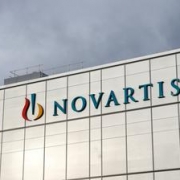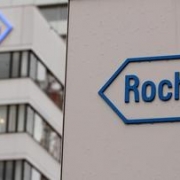Apotex Corp. announced April 12 the company’s release of Paclitaxel protein-bound particles for injection (albumin-bound), a generic version of Abraxane in the United States.
Merck announced that the company’s proposed treatment Keytruda for non-small cell lung cancer delivered positive results from a Phase III trial.
Takeda’s Exkivity Approved by U.S. FDA as First Oral Therapy Specifically Designed for Patients with EGFR Exon20 Insertion+ NSCLC
Adults, Approvals, Clinical Trials, EGFR exon 20 insertion mutations, FDA, Metastatic non-small cell lung cancer, Next-Generation Sequencing (NGS), Platinum-Based Chemotherapy, R&D, Takeda, TherapeuticsThe U.S. Food and Drug Administration approved Takeda Pharmaceutical Company Limited’s Exkivity (mobocertinib) for the treatment of adult patients with locally advanced or metastatic non-small cell lung cancer (NSCLC) with epidermal growth factor receptor (EGFR) exon 20 insertion mutations as detected by an FDA-approved test, whose disease has progressed on or after platinum-based chemotherapy.
Novartis’ drug canakinumab (ACZ885) did not meet the primary endpoint of overall survival in patients with advanced or metastatic non-small cell lung cancer in a Phase III study, but other late-stage trials are ongoing.
The Janssen Pharmaceutical Companies of Johnson & Johnson submitted a Biologics License Application to the U.S. Food and Drug Administration seeking approval of amivantamab for the treatment of patients with metastatic non-small cell lung cancer with epidermal growth factor receptor exon 20 insertion mutations whose disease has progressed on or after platinum-based chemotherapy.
ESMO News: AstraZeneca, Merck, Janssen, Amgen and More
Basal Cell Carcinoma, Blockbusters, Breast Cancer, Checkpoint Inhibitors, Clinical Data, Clinical Trial Endpoints, Clinical Trials, EGFR tyrosine kinase inhibitors (TKI), European Society for Medical Oncology (ESMO), Interim Data, MD Anderson Cancer Center, Melanoma, Metastatic Castration-Resistant Prostate Cancer (mCRPC), Metastatic non-small cell lung cancer, Non-Small Cell Lung Cancer (NSCLC), Overall Survival (OS), R&D, Renal Cell Carcinoma (RCC), Therapeutics, TumorsNumerous companies presented clinical trial data and updates at the European Society for Medical Oncology (ESMO) Virtual Congress 2020.
ASCO 2020 Highlights
American Society of Clinical Oncology (ASCO), Analysis, Androgen Deprivation Therapy (ADT), CAR-T Therapy, Clinical Data, Clinical Trials, Gastrointestinal Stromal Tumors, High-Risk Myelodysplastic Syndrome (MDS), Leukemia, Metastatic non-small cell lung cancer, Non-Metastatic Castration-Resistant Prostate Cancer (nmCRPC), PD-1/PD-L1 inhibitors, R&D, Relapse/Refractory Multiple Myeloma, T-Cells, Triple Negative Breast Cancer (TNBC)The American Society of Clinical Oncology (ASCO) 2020 meeting was held virtually this year due to the COVID-19 pandemic and included hundreds of abstracts, posters and presentations.
The FDA greenlit the combination therapy along with limited chemotherapy for the first-line treatment of adult patients with metastatic or recurrent non-small cell lung cancer with no EGFR or ALK genomic tumor aberrations.
The U.S. Food and Drug Administration approved Roche company Genentech’s checkpoint inhibitor Tecentriq (atezolizumab) for first-line treatment for metastatic non-small cell lung cancer with high PD-L1 expression.
The U.S. Food and Drug Administration approved Tecentriq as a standalone therapy for an advanced form of lung cancer.








